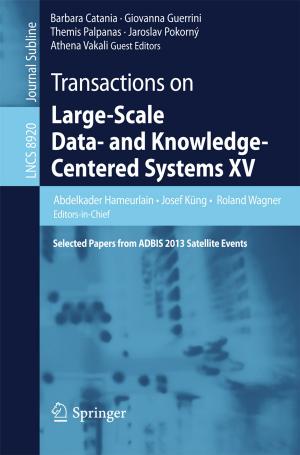The Transits of Extrasolar Planets with Moons
Nonfiction, Science & Nature, Science, Earth Sciences, Geology, Physics, Astronomy| Author: | David M. Kipping | ISBN: | 9783642222696 |
| Publisher: | Springer Berlin Heidelberg | Publication: | August 8, 2011 |
| Imprint: | Springer | Language: | English |
| Author: | David M. Kipping |
| ISBN: | 9783642222696 |
| Publisher: | Springer Berlin Heidelberg |
| Publication: | August 8, 2011 |
| Imprint: | Springer |
| Language: | English |
Can we detect the moons of extrasolar planets? For two decades, astronomers have made enormous progress in the detection and characterisation of exoplanetary systems but the identification of an "exomoon" is notably absent.
In this thesis, David Kipping shows how transiting planets may be used to infer the presence of exomoons through deviations in the time and duration of the planetary eclipses. A detailed account of the transit model, potential distortions, and timing techniques is covered before the analytic forms for the timing
variations are derived. It is shown that habitable-zone exomoons above 0.2 Earth-masses are detectable with the Kepler space telescope using these new timing techniques.
Can we detect the moons of extrasolar planets? For two decades, astronomers have made enormous progress in the detection and characterisation of exoplanetary systems but the identification of an "exomoon" is notably absent.
In this thesis, David Kipping shows how transiting planets may be used to infer the presence of exomoons through deviations in the time and duration of the planetary eclipses. A detailed account of the transit model, potential distortions, and timing techniques is covered before the analytic forms for the timing
variations are derived. It is shown that habitable-zone exomoons above 0.2 Earth-masses are detectable with the Kepler space telescope using these new timing techniques.















